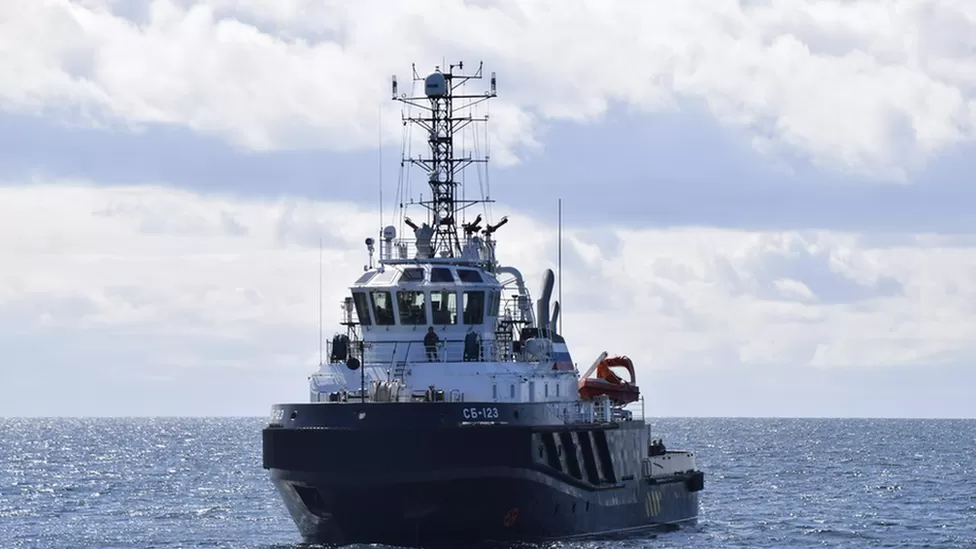According to an investigative documentary, Russian ships capable of performing underwater operations were located near where explosions later occurred on the Nord Stream pipelines.
The ships were allegedly tracked down using intercepted Russian navy communications.
Last September, underwater explosions shut down the two Nord Stream pipelines, which were built to transport gas from Russia to Europe.
The reason for the explosions remains unknown.
In the immediate aftermath, several in the West blamed Russia, while Moscow blamed Western countries, especially the United Kingdom.
There have recently been reports that intelligence pointed to pro-Ukrainian operatives, but not the Ukrainian government itself.
Russian ships have been spotted near Nord Stream pipelines days before the sabotage.
Formal investigations are still ongoing in nations near the bomb location. So far, these countries have only stated that they believe the explosions were caused by sabotage rather than an accident.
However, the most recent episode of the TV documentary series Putin’s Shadow War, as well as the accompanying English-language podcast Cold Front, provides one possible lead pointing to Russia’s involvement.
The series shown last month by Denmark’s DR, Norway’s NRK, Sweden’s SVT, and Finland’s Yle broadcasters revealed that Russian warships appeared to be charting out wind farms in the North Sea, including off the coast of the United Kingdom.
Now, the latest episode focuses on what they say are suspicious ship movements in the run-up to the Nord Stream blasts.
The ships are believed to include the Russian naval research vessel Sibiryakov, the tugboat SB-123, and a third ship from the Russian naval fleet that the media outlets have not been able to identify by name.
These were so-called “ghost ships”, which had their transmitters turned off. The broadcasters, however, say they were able to track their movements, using intercepted radio communications the vessels sent to Russian naval bases between June and September 2022.
These movements were monitored by a former British naval intelligence officer who worked on the Russian Baltic Fleet interception until his retirement in 2018. That person, who remains anonymous in the documentary, claims to have conducted his research using open-source information and radio communications.
These ships are claimed to have been in the neighborhood of an explosion site for several hours, if not nearly a full day in one case.
The Sibiryakov, one of the vessels, is thought to be capable of underwater surveillance and mapping, as well as launching a tiny underwater vehicle.
The former Royal Naval intelligence officer says it took an unusual navigational track in June, around the place where the pipeline would later blow up, and changed its communications pattern to a secret receiver.
Another unnamed vessel was also present in that area the previous week in June.
And a third vessel, the naval tugboat SB-123, is said to have arrived just five days before the September explosions. The radio communication suggests that it stayed there for the entire evening and night before sailing back toward Russia.
Satellite footage analyzed by the broadcasters is reported to back up the assertions about the unusual routes, and other sources in Germany indicated it was in the area on September 21-22.
According to specialists interviewed by the broadcasters, this vehicle can be used to support and rescue submarines and can carry out operations on the seabed.
Also read: White House rejects US involvement in Nord Stream explosion
Last week, it was revealed that the Danish military had photographed another Russian navy vessel specializing in submarine operations near the blast site.
According to a Danish publication, the submarine rescue ship SS-750 was photographed four days before the nearby explosions. That ship can transport a miniature submarine.
The documentary does not say there is conclusive proof of what the vessels were up to or that Russia was behind the blast. But it raises questions about the unusual nature of the activity.
Russia has consistently denied any involvement in the blasts.
